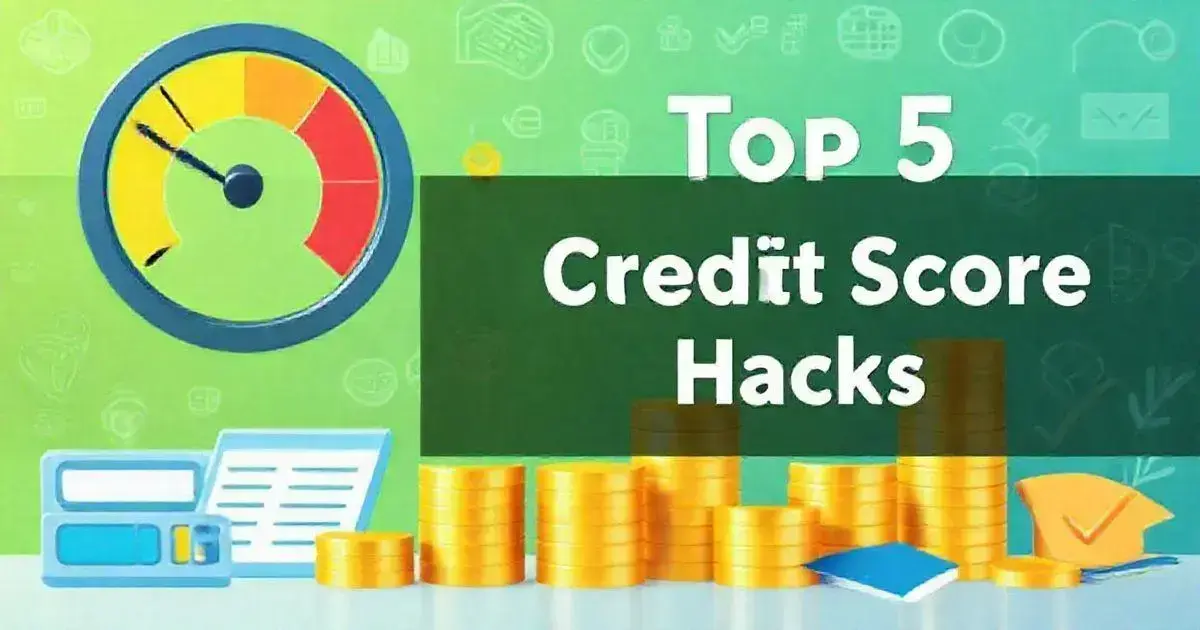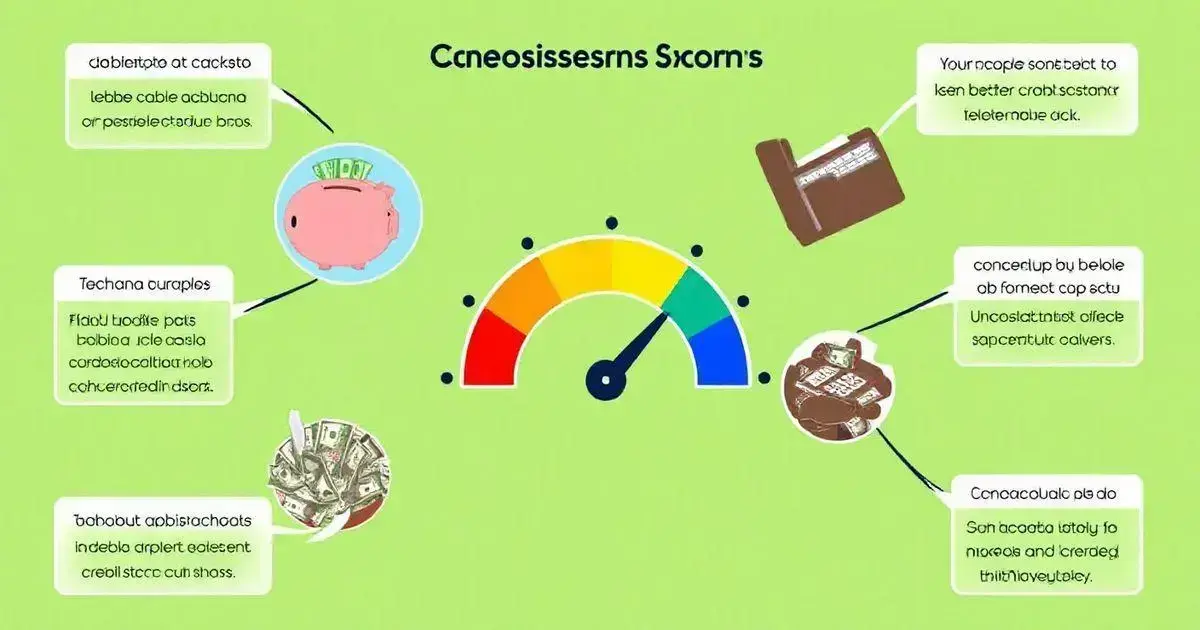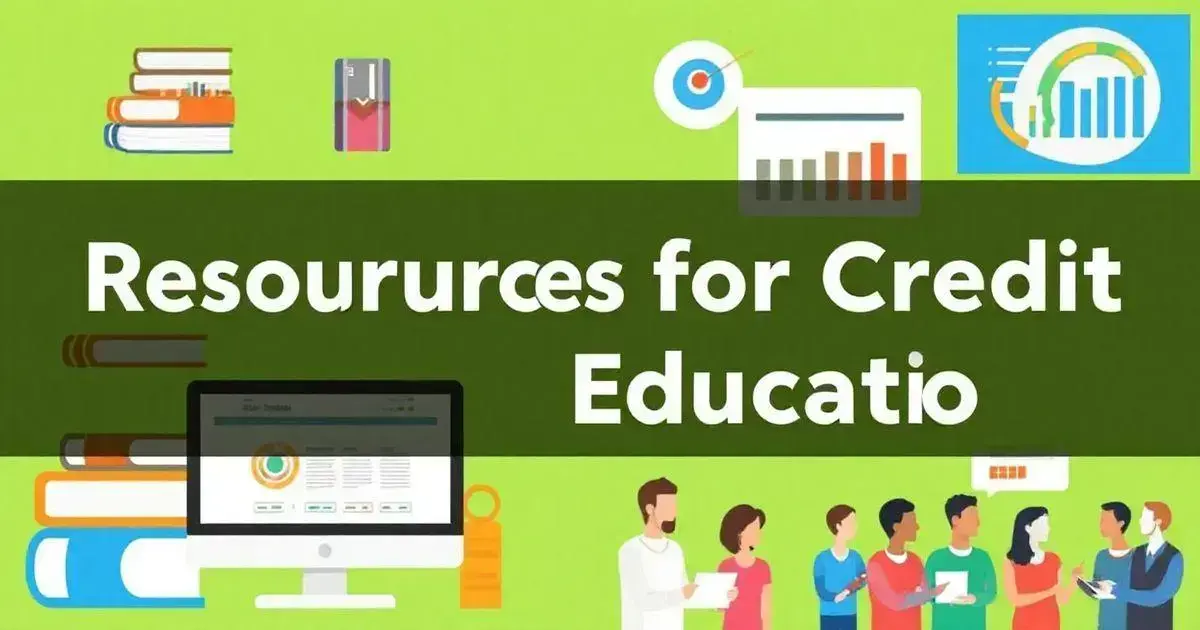Understanding Credit Scores
Understanding credit scores is essential for anyone looking to improve their financial health. A credit score is a numerical representation of your creditworthiness, generally ranging from 300 to 850.
Higher scores indicate lower risk to lenders, while lower scores can make it challenging to secure loans or credit cards. Your credit score is based on several factors: payment history, credit utilization, the length of your credit history, and the types of credit you use. By utilizing Credit score hacks, you can strategically improve your score over time.
To maintain a good score, it is crucial to make payments on time and keep your credit utilization below 30% of your total available credit. Regularly checking your credit report can help you spot errors and understand your score better.
Services like AnnualCreditReport.com offer free reports annually, and using Credit score hacks can help you dispute inaccuracies directly with the reporting agency, boosting your credit score more effectively.
Top 5 Credit Score Hacks

Improving your credit score is possible with the right credit score hacks. Here are the top five strategies to enhance your score:
- Pay Your Bills On Time: Timely payment is crucial for maintaining a good credit history. Late payments can drop your score significantly.
- Reduce Your Credit Utilization: Keep your credit utilization ratio below 30%. This means using less than 30% of your available credit.
- Dispute Errors: Regularly check your credit report for inaccuracies. If you find any errors, dispute them with the credit bureau.
- Avoid Opening Multiple Accounts: Each time you apply for credit, a hard inquiry is made, which can negatively impact your score. Limit new credit applications.
- Build a Credit History: If you’re new to credit, consider becoming an authorized user on someone else’s account or getting a secured credit card to start building your credit history.
These credit score hacks can help you increase your score over time, making you eligible for lower interest rates and better loans.
How to Monitor Your Credit
Monitoring your credit is important for understanding your financial health. There are several ways to keep an eye on your credit score and report, and using Credit score hacks can help you stay ahead.
- Use Free Credit Monitoring Services: Many websites offer free access to your credit score and alerts for changes in your report.
- Request a Free Credit Report: You are entitled to one free credit report each year.
Visit AnnualCreditReport.com to obtain yours. - Set Up Alerts: Some banks and credit cards allow you to set up alerts for large transactions or changes to your credit utilization.
- Check Your Credit Utilization: Regularly monitor how much credit you’re using compared to your total credit limit to maintain good standing.
- Review Your Credit Report Regularly: Look for unusual activity or errors.
Reporting inaccuracies can help improve your score.
Monitoring your credit is a proactive way to ensure your financial well-being and help you achieve future goals.
Common Credit Score Myths

There are many common credit score myths that can mislead individuals about their credit. Understanding the truth can help you manage your credit more effectively, and applying Credit score hacks can be key to avoiding these misconceptions.
- Paying off debt helps your score instantly: While paying off debt is good, your credit score may not reflect this change immediately. It takes time for updates to show up on your credit report.
- Checking your credit hurts your score: This is false. Checking your own credit score is considered a soft inquiry and does not affect your score.
- Closing old accounts improves your score: In fact, closing old accounts can reduce your credit history length, which can negatively impact your score.
- All debts are equal for your score: Different types of debt, like revolving credit and installment loans, impact your credit score differently.
- Income affects your credit score: Your income does not directly influence your credit score. It is based on your credit usage and payment history.
By avoiding these myths and using Credit score hacks, you can make better decisions and improve your credit more effectively.
Long-term Strategies for a High Score
Resources for Credit Education

Accessing resources for credit education is essential for improving your understanding of credit scores and personal finance. Here are some valuable resources:
- Credit.org: This site offers free resources on budgeting, credit scores, and managing debt.
- AnnualCreditReport.com: Obtain your free credit report once a year from this official site.
- NerdWallet: A fantastic website for financial advice, including tips on improving your credit.
- Consumer Financial Protection Bureau (CFPB): This government resource provides a wealth of knowledge about credit scores and how to improve them.
- Credit Karma: Offers free credit scores and monitoring, along with personalized tips for improving your credit.
Utilizing these resources can help you make informed financial decisions and effectively manage your credit.
In Summary: Strategies for a Healthy Credit Score
Maintaining a good credit score requires commitment and informed actions. Implementing credit score hacks and understanding the factors affecting your score is essential.
Utilizing resources for credit education empowers you to make smarter financial decisions. Regular monitoring and adopting long-term strategies like timely payments and debt management will keep your credit healthy.
By dispelling common myths about credit, you can navigate your financial journey confidently. Remember, improving your credit score is a marathon, not a sprint; stay patient and proactive.
